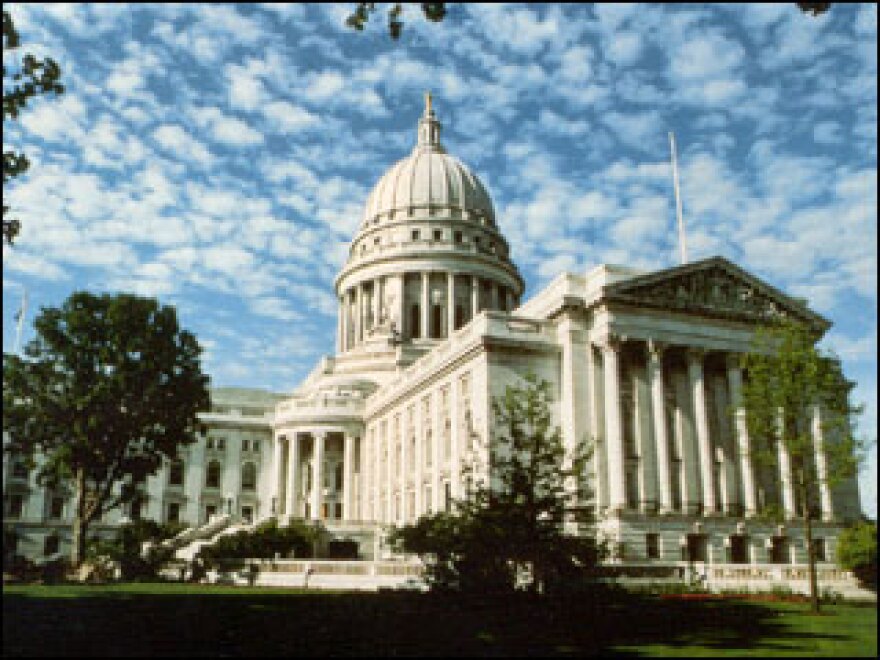Every few weeks, WUWM education reporter Rachel Morello flips through her notebook to bring us the scoop on news out of area schools. Test your knowledge of headlines big and small with her news quiz!
Winter storms have topped the forecast for Milwaukee-area weather this week – which means many local students have already seen classes cancelled for snow days.
If that’s the case, kids – I have a homework assignment for you: take this week’s education news quiz, and see how you stack up against your parents and friends!
This time around, it’s all about ideas Wisconsin lawmakers are tossing around, focused on policies they could implement to improve state classrooms.
Fees for Free
Free tuition could be a reality for one specific group of Wisconsin students.
A new bill in front of legislators this month would grant free tuition and fees to in-state universities and technical colleges. Which group of students would this apply to?
- First-generation college students
- Foster children
- Students receiving a voucher in the Wisconsin Parental Choice Program

National data shows only 20 percent of foster children -- kids who have spent any amount of time in out-of-home care – who have graduated high school, go on to attend college.
Assembly Bill 777 aims to curb that statistic. The measure would waive tuition and fees for 12 semesters of college-level work, or until the recipient obtains his or her degree or reaches age 25 (whichever comes first).
To qualify, the student must be a Wisconsin resident, and meet one of the following three descriptions:
- Have lived in an out-of-home placement since age 13
- Have been adopted or appointed a guardian after turning 13
- Live in an out-of-home placement on their 18th birthday
According to the state Department of Children and Families, those parameters apply to 7,500 kids throughout the state.
This is a very popular bill; more than one-third of the Wisconsin legislature’s 132 members are backing the measure. And so is University of Wisconsin System president Ray Cross, despite the fact that the measure could cost the state money in tuition reimbursements and grants, and potentially result in financial losses for UW schools.
It’s important to note, however, that the bill does lay out maneuvers to get some funding provided from other state agencies, like the Higher Educational Aids Board and Department of Children and Families.
UW System officials estimate more than 4,600 people would be eligible for free tuition and fees under the bill, which would make Wisconsin the 29th state to offer some form of tuition assistance for foster youth, according to the Education Commission of the States.
Fixing the Formula
Wisconsin has assembled a panel of lawmakers and school stakeholders, who will get together over the next year to talk about potentially re-doing one of the state’s cornerstone education policies. What are they hoping to fix?
- School funding
- School vouchers
- School transportation

The Blue Ribbon Commission on School Funding assembled in December. The group is comprised of six Republican state legislators and three of their Democratic counterparts, along with five representatives from public and private schools, school advocacy group and UW-Madison. They’re charged with taking a comprehensive look into Wisconsin’s school funding formula – which is complicated, to say the least.
Public school funding makes up one-third of the state’s budget; it gets the most money of any state program. And the formula for distributing that money among schools is very intricate.
So intricate, in fact, that no bipartisan group has taken a serious look at making changes in about 20 years.
Recent research out of the Madison-based Wisconsin Policy Forum shows Wisconsin ranks high nationally for providing adequate funding in an equitable way to K-12 schools – although researchers acknowledge the state’s school finance system has its challenges, after “years of layering new programs and funding methods on top of one another.”
Many people argue the formula in its current form is flawed, and distributes money unfairly.
The Blue Ribbon Commission will review how that distribution currently happens, and how different folks propose modifying it, if at all. They’ll host public hearings throughout Wisconsin – the first of which took place in Milwaukee last week.
The goal: to put together a report with recommendations, to be considered for the next state budget, in 2019.
What's coming up?
Snow, snow and more snow. Many K-12 schools and local universities cancelled classes and activities today, and the wintry weather isn’t looking like it will end anytime soon. So, stay warm!
While you’re curled up on the couch, let me know: what’s happening in your classroom? What are your kids talking about around the dinner table? What’s the latest out of your parent group or PTA? I want to know! Connect with me on social media, or submit your question about schools in southeastern Wisconsin below.
Have a question about education you'd like Rachel to dig into? Submit below.
_

